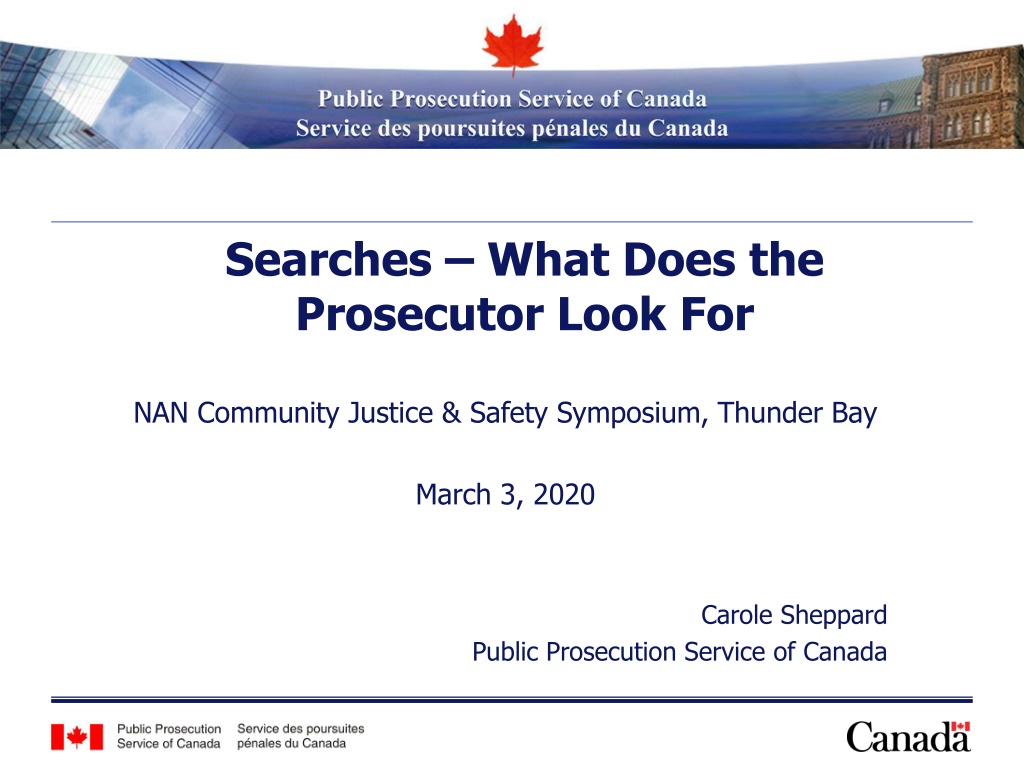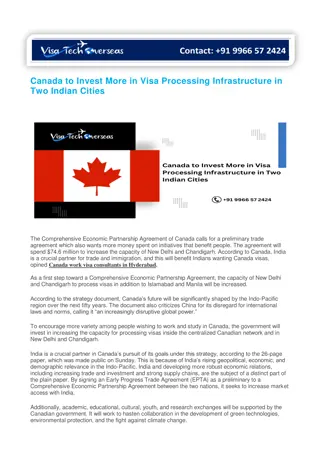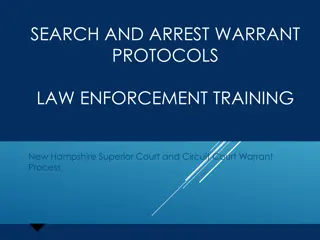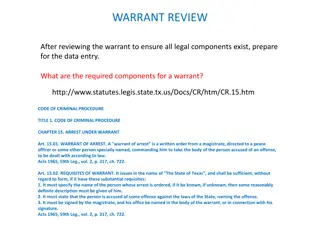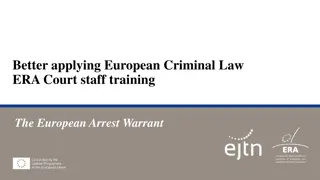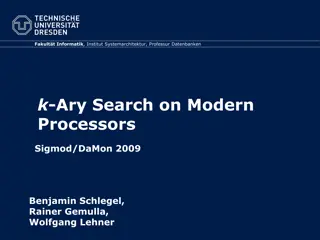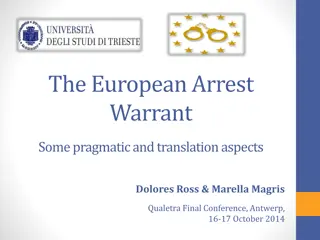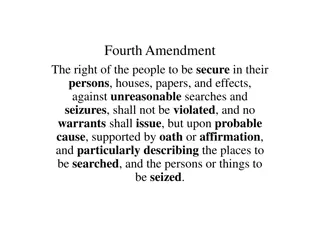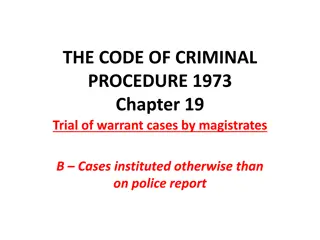Understanding the Process of Obtaining a Search Warrant in Canada
Exploring the requirements and considerations involved in obtaining a search warrant in Canada, including the grounds, principles, and procedures followed by law enforcement officers. The information delves into the legal aspects of conducting searches, emphasizing the importance of reliability, specificity, and recentness of the evidence presented to obtain a search warrant.
Download Presentation

Please find below an Image/Link to download the presentation.
The content on the website is provided AS IS for your information and personal use only. It may not be sold, licensed, or shared on other websites without obtaining consent from the author. Download presentation by click this link. If you encounter any issues during the download, it is possible that the publisher has removed the file from their server.
E N D
Presentation Transcript
Searches What Does the Prosecutor Look For NAN Community Justice & Safety Symposium, Thunder Bay March 3, 2020 Carole Sheppard Public Prosecution Service of Canada
The principle Any person who enters another person s home without permission is trespassing Section 8 of the Charter says everyone has the right to be secure against unreasonable search and seizure The Criminal Code and other laws provide a way the search warrant - for police to legally enter a place, including a home, to look for and seize evidence of a criminal offence 2
How to get a search warrant A police officer has to make a written application for a search warrant to a justice a Judge or a Justice of the Peace The officer has to describe the reasons for believing that there is evidence of a criminal offence in the place to be searched What reasons are sufficient? 3
Grounds for a Search Warrant The information has to be: Recent Reliable Detailed Specific The officer must make full, fair and frank disclosure of the facts in her application for a warrant, including any facts that might undermine her grounds for obtaining the warrant 4
Grounds for a Search Warrant In a 1989 drug case called R. v. DeBot, the Supreme Court of Canada examined the reasons the police had to search Mr. DeBot without a warrant. The Court said: First, was the information predicting the commission of a criminal offence compelling? Second, where that information was based on a tip originating from a source outside the police, was that source credible? Finally, was the information corroborated by police investigation prior to making the decision to conduct the search? 5
Grounds for a Search Warrant Questions: Who is the trusted community member (TCM) and does s/he want to be anonymous (i.e. a confidential informer )? Does the TCM have a history with the alleged drug dealer? What is the identity of the person doing the dealing? How does the TCM know about the drug-dealing through personal observation or is the information second-, third- or even fourth-hand? How stale or fresh is the information? How specific and detailed is the information Type of drug? Quantity? Prices? How is it being brought into the community? What follow-up investigation has been done by the police to corroborate the TCM information? 6
